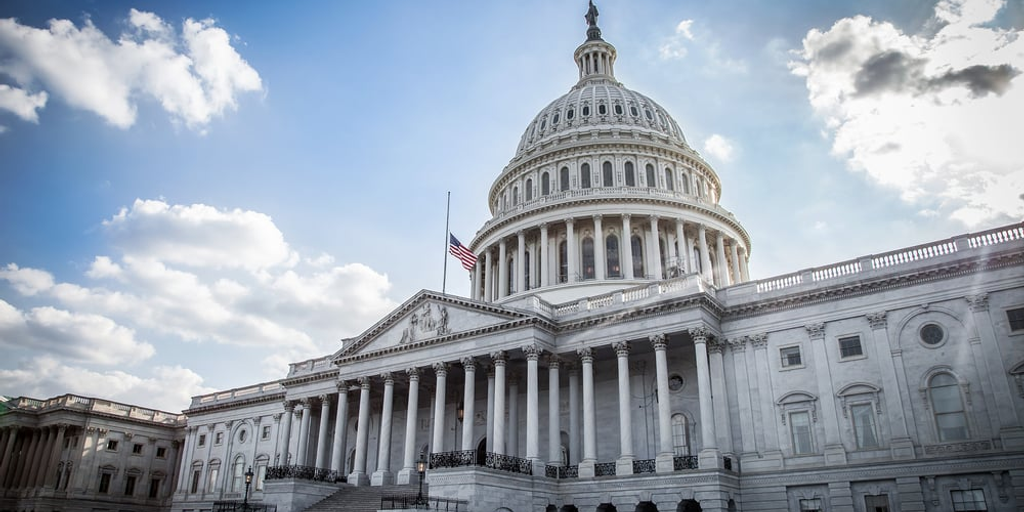US Senate Votes to Overturn Controversial Crypto Tax Reporting Rule
In a significant move that has captured the attention of the cryptocurrency community and investors alike, the United States Senate has voted to overturn a controversial tax reporting rule that many believe could stifle innovation and growth in the digital asset space. This pivotal decision marks a crucial step in the legislative process, as a parallel version of the resolution is now set to advance in the House of Representatives. This article will delve into the implications of the Senate’s vote, the details of the tax reporting rule, and what lies ahead in the legislative journey.
The Controversial Tax Reporting Rule
The tax reporting rule in question was introduced as part of a larger package aimed at increasing tax compliance among cryptocurrency users. Under this rule, cryptocurrency brokers would be required to report transactions to the Internal Revenue Service (IRS), similar to traditional financial institutions. While the intention behind the rule was to ensure tax compliance, critics argued that it imposed excessive burdens on crypto businesses and could lead to unintended consequences.
Key Concerns Raised by Critics
- Compliance Costs: Many small and medium-sized crypto firms expressed concerns about the potential costs associated with implementing the necessary reporting mechanisms. The requirement could disproportionately impact smaller players in the market, hindering their ability to compete.
- Innovation Stifling: The rule was seen as a barrier to innovation within the cryptocurrency space. Many industry experts argued that the added regulatory burden could deter startups from entering the market or hinder existing businesses from expanding their services.
- Privacy Issues: The requirement to report transactions raised significant privacy concerns among crypto users. The decentralized nature of cryptocurrencies is a fundamental aspect of their appeal, and many users fear that increased reporting could erode this privacy.
The Senate’s Resolution
The Senate’s recent vote signifies a turning point in the legislative landscape for cryptocurrency regulation. By overturning the controversial tax reporting rule, the Senate has sent a clear message to both regulators and the market: a balanced approach to regulation is necessary to foster growth and innovation in the cryptocurrency sector.
Details of the Senate Vote
The Senate’s vote was largely bipartisan, reflecting a growing consensus among lawmakers that overly burdensome regulations could stifle the burgeoning cryptocurrency industry. The resolution passed with a significant majority, demonstrating support from both sides of the aisle. This bipartisan backing highlights the recognition of the importance of the cryptocurrency market in the broader economy.
As the resolution now awaits consideration in the House of Representatives, it is essential to understand the implications of its passage. The House will need to pass a floor vote before the resolution can be sent to President Trump’s desk for final approval.
What Lies Ahead in the Legislative Journey
With the resolution now in the hands of the House, several factors will play a crucial role in determining its fate:
- House Support: The level of support within the House will be pivotal. While there is bipartisan momentum from the Senate, the House may have differing opinions on the tax reporting rule and its implications. Engaging stakeholders and addressing concerns will be crucial for gaining sufficient support.
- Lobbying Efforts: The cryptocurrency industry has been increasingly vocal in its efforts to influence policymakers. Lobbying efforts by industry groups and advocates will likely intensify as the resolution moves to the House, aiming to ensure a favorable outcome.
- Public Sentiment: The growing popularity of cryptocurrencies among the general public may also play a role in shaping the House’s decision. As more individuals engage with digital assets, lawmakers may feel pressure to align with their constituents’ interests.
Potential Implications for the Cryptocurrency Market
The passage of the resolution in the House could have several important implications for the cryptocurrency market:
- Market Confidence: Overturning the tax reporting rule may boost market confidence among investors and businesses. A more favorable regulatory environment could encourage greater investment in cryptocurrencies and blockchain technologies.
- Innovation and Growth: Removing excessive regulatory burdens is expected to foster innovation within the industry. Startups and established companies alike may find it easier to develop new products and services without the fear of onerous compliance costs.
- Global Competitiveness: The U.S. cryptocurrency market has faced increasing competition from other countries with more favorable regulatory environments. A more supportive stance from lawmakers could position the U.S. as a leader in the global cryptocurrency space.
Conclusion
The Senate’s vote to overturn the controversial crypto tax reporting rule is a significant development in the ongoing evolution of cryptocurrency regulation in the United States. As the resolution makes its way to the House, the focus will be on garnering support and addressing concerns to ensure a favorable outcome.
For the cryptocurrency community, this is a moment of optimism. The potential for a more balanced regulatory framework could pave the way for increased innovation, investment, and growth in the digital asset space. As the legislative process unfolds, all eyes will be on the House to see if they follow the Senate’s lead and prioritize a regulatory environment that supports the burgeoning cryptocurrency industry.





